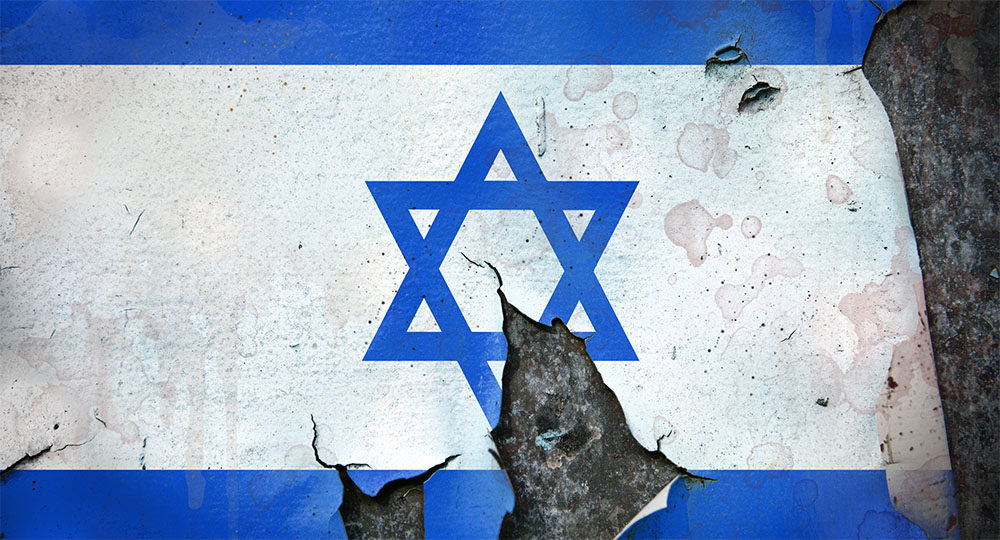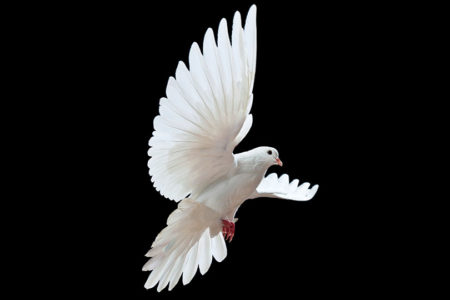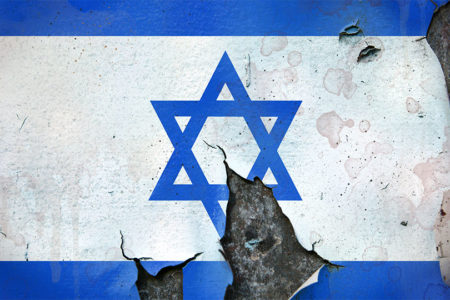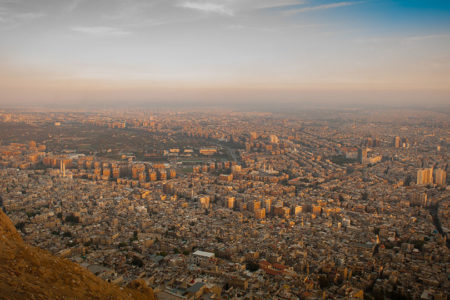Israel’s Internal Battle
While Haifa pays,
Tel Aviv plays,
but Jerusalem prays.
It is an old ditty spoken of the three largest cities in Israel, but one that reflects the serious and growing nature of an internal, religious struggle that is eating at the very vitals of Israeli society. Many secular Israelis call it a “culture war.” But at stake is Israel’s future.
The struggle is a political one that divides even the secular community into battling camps that are waging ideological war over how best to manifest their differing visions of what it means to be a Zionist in modern Israel. Today the nation faces a crisis within itself that may, in the end, be even more serious than the threat from its Arab neighbors.
For years, in Jerusalem in particular, the Orthodox—the more religious segment of the Israeli population—have exercised their religious-political muscles by barricading their neighborhoods to traffic on the Sabbath. In the early 1980s, they expanded their efforts by stoning cars that drove to a secular suburb named Ramot on that holy seventh day.
But the Orthodox are concerned with more than just the Sabbath. In the last two decades, Israeli archaeologists have had to contend with religious zealots who stone their workers for uncovering human bones that the Orthodox believe cannot be “defiled” by being disturbed. The excavator of the City of David, Yigal Shiloh, was seriously injured by such a stone, thrown by one of these “archaeology police.”
Sometimes these religious demonstrators uphold commendable, moral causes; but they use questionable and destructive methods. A few years ago, zealots torched a large number of Jerusalem bus stops because the walls displayed advertisements for swimwear worn by scantily clad models.
Not all violence and mayhem, however, come from the religious sector. Orthodox worshipers arriving for morning prayers have found dead pigs on the thresholds of their synagogues. Religious youths are regularly mocked and shamed by their secular counterparts in the army and in certain “mixed” schools.
In a sense, the conflict is inevitable. Israel is a democracy—some believe the only real democracy in the Middle East. At the same time, it desires to be a “Jewish state” where the majority of its citizens are Jewish and enjoy benefits unavailable to those of other faiths. The most eloquent expression of this philosophy is the Law of Return, which bestows immediate Israeli citizenship on any Jewish person who desires to immigrate to the land of his or her forefathers.
Yet Israel faces a unique dilemma. How can it be a democracy, which does not legislate religious belief and practice, and still call itself a “Jewish state”? The situation seems a recipe for conflict. Perhaps, however, it is a conflict endemic to that part of the world, which abounds with situations that appear contradictory to those of us in the West who are accustomed to the doctrine of the separation of church and state.
Religious division within Israel is not new. From the earliest days after the War of Independence (1948–49), relations between secular and religious Israelis were marked by suspicion and disagreements. In the face of extremely hostile neighbors, however, Israelis saw the need to project at least the appearance of a united front. Thus the rival factions cut a deal for coexistence: Secular Israelis would mind the public and political realms (the army and government) while the Orthodox would look after private, religious affairs, such as marriage, burial, and conversion. Over the years, however, a remarkable, although slow, transformation has taken place. The Orthodox have begun to amass political power while the secular politicians are trying to wrest marriage and conversions away from the Orthodox.
Probably fewer than 25 percent of all Israelis could be called religious in the Orthodox sense. Even within the religious camp, some people are far more extreme than others. The secular majority argues that, while it is pushing for pluralism, the ultra-Orthodox are trying to impose their will on everyone.
Insightful observers of the Israeli scene, however, realize that the issue involves more than religion. It involves power—political power at that. How is it that a distinct minority can wield such a forceful influence in the life of a nation? The answer lies in the nature of the Israeli political system.
Israel is made up of a mosaic of political parties—at least a dozen by current count, with new ones appearing periodical- ly and others dissolving and merging. No single party ever has won the majority of the Israeli popular vote. Therefore, every administration since the state began has needed to form a coalition government. This means the main party (Labor or Likud) that wins the most votes must assemble a coalition with other smaller parties to secure a majority of the 120 seats in the Knesset (Parliament), so a government can be formed. The Labor coalition ruled the country from 1949 to 1977, when Menachem Begin’s Likud coalition took over for the first time. Alternations of those two coalitions have ruled since, with Benjamin Netanyahu’s Likud coalition in power for several years until dethroned by Ehud Barak’s Labor coalition in 2000, which, in turn, was replaced by Ariel Sharon’s Likud coalition in 2001. Each of these coalitions depended on one or more small religious parties for its power. Therefore, a minor party may wield much more influence than warranted by its small number of constituents or its few members in the Knesset.
Presently, three main religious parties hold seats in the Knesset—the National Religious Party, the Shas, and United Torah Judaism. Because no administration can afford to alienate its religious parties, Israel’s secular majority is unable to pass laws opposed by the minority.
Perhaps no better illustration of this situation can be found than when Menachem Begin’s government almost toppled in the late 1970s over the issue of Israel’s airline, El Al, flying on the Sabbath. For years the airline had done just that, to the ineffective disapproval of the religious. But the religious knew their support was so essential to Begin’s administration that they threatened to bolt from the coalition until the Likud agreed to back a noSabbath flying policy in the 1981 elections. The new policy nearly bankrupted the airline, which had to be rescued by massive national subsidies. Today El Al does not depart or land on the Sabbath, to the delight of the Orthodox and the airline’s competition, but to the frustration of nearly everyone else.
The divisions between religious and secular Israelis are not the only conflicts in Israeli society. Secular Israelis often oppose each other virulently regarding such issues as how best to wage the continuing struggle against those Arabs who resent even the least bit of Israeli control over their lives. In the last election, the two candidates, Ehud Barak and Ariel Sharon, both very secular in their religious views and commitments, differed widely concerning how the modern state should insure its survival. Barak, true to his Labor associations, followed a policy of appeasement and restraint. He believed fervently that returning land to the Arabs was the only way to achieve a lasting peace (as did the late Yitzhak Rabin, also of the Labor party). Sharon, however, true to his Likud loyalties, has advocated a more hard-line approach of no Arab sovereignty over Jerusalem and very little, if any, further return of hardwon land to the Palestinians.
These ideological disagreements lie deep within the fabric of Israeli society. A historical survey documents them thoroughly in a book by noted Israeli political scientist Ehud Sprinzak titled Brother Against Brother: Violence and Extremism in Israeli Politics from the Altalena to the Rabin Assassination (The Free Press).
Sprinzak documents the famous feud between Menachem Begin and David Ben-Gurion. (Begin never spoke publicly with Ben-Gurion again after BenGurion’s order to sink the Irgun ship, Altalena, in June 1949—a ship Begin was aboard at the time!) Sprinzak also traces how that ideological conflict has continued for more than 50 years and how the quarreling Israelis only unite when their common enemies—such as the Arab countries or Palestinian Authority—force them to do so.
The most recent issue dividing Israelis has been the vexing matter of settlers in the area of biblical Judea and Samaria, commonly called the West Bank. These Jewish settlers, most of whom are religious, today number almost 200,000. Israelis who favor a Jewish presence in towns and settlements near Nablus, Hebron, Bethlehem, and Ramallah view the settlers as a strategically placed buffer between Israel and the large, nearby Arab cities. Israelis who oppose the settlers being there see them as an impediment to peace, saying they constitute a provocative element that serves as a thorn in the Arab side.
The most heated debates in the Knesset do not arise over issues of “sacred” versus “secular”—as real and serious as these matters are. The most hostile exchanges come over how to deal with the Arabs who desire complete independence from Israeli control.
In one sense, the Palestinians’ so-called Al-Aqsa Intifada, launched in September 2000, has galvanized some of these divisions. On the other hand, it has served to further polarize politicians regarding how firmly Israel should respond to the Arab violence.
For an outsider like me who loves Israel, such internal conflicts seem grievous. On the other hand, I have lived long enough to see the State of Israel survive not only the external attacks of its enemies but the political attacks from within as well. Israel will survive somehow, even in spite of itself.
A “Dry Bones” cartoon that once ran in The Jerusalem Post probably epitomizes Israel’s uncanny ability to rise above its internal strife, even though it sometimes seems the nation again has sabotaged itself. Two angels are looking down from heaven to Earth, when one of them remarks, “Oh, my, can you believe what the children of Israel have gotten themselves into now?” The other angel responds, “I wonder how He is going to get them out of this!”
God undoubtedly has protected and provided for little Israel more often than the nation realizes. If the Lord tarries and internal struggles persist, it will be interesting to see what type of state Israel will be 50 years from now. Will it be a nation where respect for the Sabbath is legislated and Jewish law adopted or a live-and-let-live state of civil laws for Jewish people of all persuasions? And which group’s philosophy will prevail in the Arab-Israeli struggle? Time will tell.






